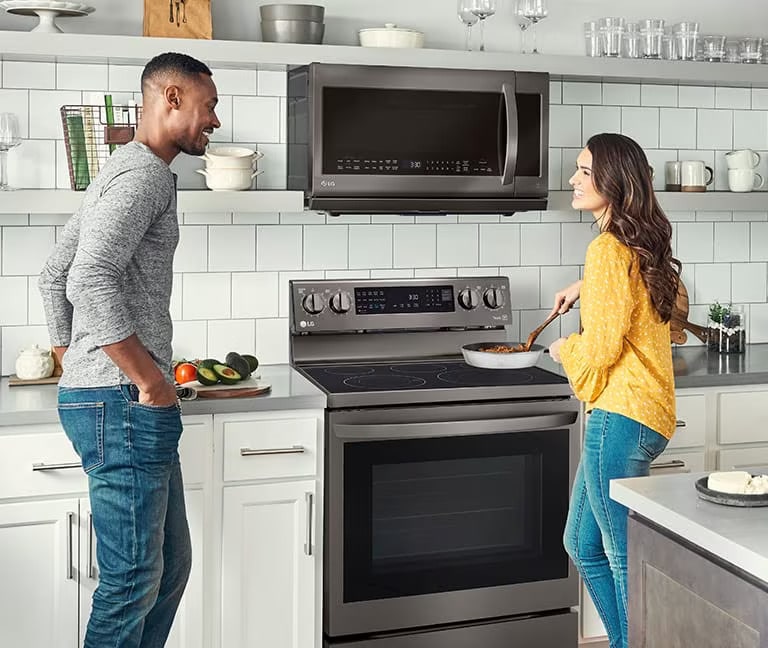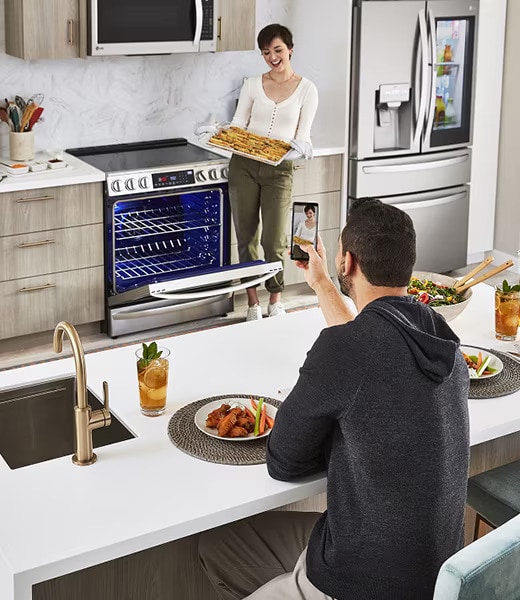We use cookies, including cookies from third parties, to enhance your user experience and the effectiveness of our marketing activities. These cookies are performance, analytics and advertising cookies, please see our Privacy and Cookie policy for further information. If you agree to all of our cookies select “Accept all” or select “Cookie Settings” to see which cookies we use and choose which ones you would like to accept.
7 Tips to Make Your Kitchen More Energy Efficient
7 Tips to Make Your Kitchen More Energy Efficient
Whether you own or rent your home, energy efficiency is an important goal. Becoming more energy efficient not only lowers your monthly bills, but it is also beneficial for the environment. One of the rooms in your home that has the most potential for energy efficiency is the kitchen. Below are seven energy efficient kitchen tips to help you maximize energy savings and minimize your impact on the environment.
#1 Add an aerator to your faucets.
An aerator is a device that shapes the stream of water coming out of your faucets in order to prevent splashing and ensure an evenly pressured stream1. Adding an aerator to your faucets reduces water consumption, which is better for the environment and can lower your monthly water bill. Although it may take a little longer to fill pots and glasses with water, it will be well worth the benefits.
#2 Upgrade your oven.
If you are looking for ways to conserve energy, upgrading to an energy efficient oven is highly recommended. One option is the LG InstaView ThinQ® Range with Air Fry, which allows you to check the progress of your meal without opening the oven door and releasing hot air. Simply knock on the glass panel door of the oven to see how your food is cooking.
#3 Make use of the ThinQ® app.
Once you have upgraded your oven to the InstaView ThinQ® Range with Air Fry, you will also have the option to use the ThinQ® app to notify you when your oven is finished pre-heating. In addition to allowing you to monitor your cooking progress so you know when your dish is done, the ThinQ® app also provides information about the oven temperature from any location.
Download for iOS | Android
#4 Reduce tap water waste by keeping it fresh in the fridge.
Anyone who is serious about energy conservation understands the importance of reducing water use. One of the water-wasting activities that is often overlooked is the use of tap water for drinking. Running the faucet until the water is very cold before filling a glass leads to water waste. Instead, consider purchasing a water filtration pitcher to keep your drinking water in the fridge so it is cold when you need it.
#5 Use the proper dishwasher cycle.
Compared to the traditional method of washing dishes in the sink, using a dishwasher is already saving you energy. However, you can increase energy savings even more by exercising care when you run the dishwasher. Be sure to only run your dishwasher when you’ve collected enough dirty dishes for a full load to save as much water as possible.
If you haven't already upgraded to an Energy Star® dishwasher, consider installing the LG QuadWash® Dishwasher with TrueSteam® . This dishwasher offers several deep cleaning features that make it one of the most high quality energy smart appliances on the market. With its unique steam and multi-motion settings, you can get a sparkling clean even on the fullest loads.
#6 Upgrade the refrigerator.
One of the greatest expenders of energy in your kitchen is the refrigerator. Fortunately, you can reduce energy consumption by up to 10%2 by upgrading to an Energy Star® refrigerator, such as the LG InstaView™ Door-in-Door® Refrigerator. The Door-in-Door® feature also allows easy access to your beverages and snacks, so you don’t have to waste energy by repeatedly opening and closing the fridge. Not only do these refrigerators come with a strong potential of delivering lower energy bills, but many Energy Star® appliances are also available for tax rebates, which can save even more money.
#7 Use lids on your pots to conserve heat.
Are you boiling water or cooking food with uncovered pots on the stove? Making use of your pots' lids can speed up the cooking process considerably. Adding a lid to your heating pot contains the steam and heat energy, which means the contents will reach their desired temperature faster, saving both energy and time.
It is important to do our part when it comes to sustainable energy. With these tips, you can reduce energy consumption in your kitchen, lower your energy bills and reduce your impact on the environment.


